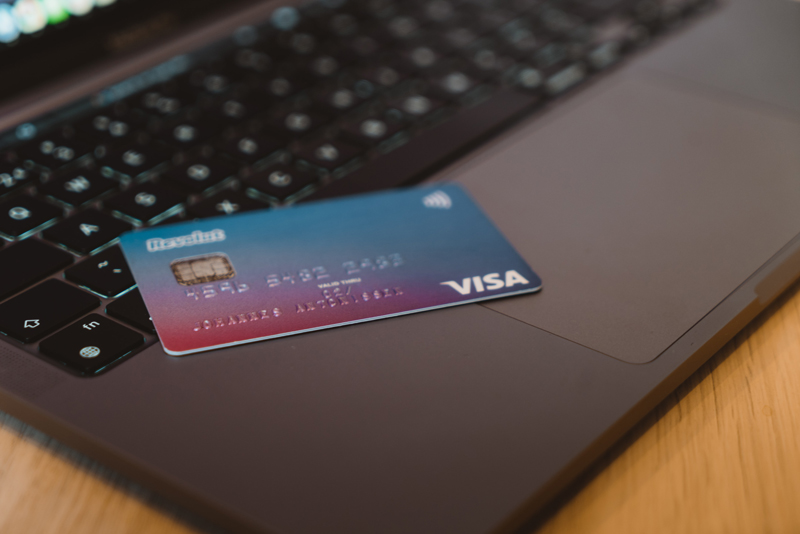How Long Do You Have To Dispute Credit Card Charges
- Posted on Feb 2, 2023

How Long Do You Have to Dispute Credit Card Charges
Do you ever wonder what to do when your credit card statement shows a charge that you don't recognize? Have disputes with merchants left you feeling confused and frustrated? Knowing how long you have to dispute a Credit Card charge is key, as many banks and credit card companies place time limits on filing claims. Read on to learn more about the timeline involved in disputing Credit Card charges and getting back control of your financial security.
What is the chargeback process and how does it work
The chargeback process is the way that customers can dispute a credit card transaction with the merchant and have it reversed. To start the process, customers must contact their financial institution to request a dispute form and then complete it with details of why they are disputing the charge. The financial institution then investigates the claim and may dispute the charge with the issuing bank, who will in turn investigate with the merchant for an explanation. If found valid, the issuing bank can reverse or ‘charge back’ the purchase amount from the merchant's account. This allows customers to take back control over their money and ensure that fraudulent transactions do not go unnoticed.
How long do you have to dispute a credit card charge?
Consumers have a limited amount of time to dispute a credit card charge that they feel is incorrect. According to the Consumer Financial Protection Bureau, credit card users typically have 60 days from the date on the transaction statement in which they can contest charges on their account. It's essential to bring up any errors to your credit card issuer quickly as possible since disputing too late will make it difficult to get a resolution. Additionally, it's always suggested that you respond to every dispute with written documentation and maintain records of all emails, phone conversations, and correspondence with the credit card company. This will ensure that you are able to back up your claims should the dispute process take longer than expected.
What are some of the reasons you might want to dispute a charge?
If you've ever seen an incorrect charge on your credit card or debit card statement, you know the frustration and worry that arise. Whether it's a product or service you don't remember ordering, a double billing, or any other strange transaction, it's important to dispute the charge for both financial and security reasons. Disputing a charge quickly can help prevent fraudulent activity from occurring on your accounts and protect your personal information. You should also dispute charges if goods or services fail to live up to what was promised at the time of purchase. Filing a dispute is one way to protect yourself from being charged for something you don't want or need and make sure you receive what was initially communicated in the agreement.
How can you prevent fraudulent charges from happening in the first place?
Preventing fraudulent charges is an important part of managing your credit. The best way to do this is to be proactive about monitoring your accounts for unauthorized purchases or suspicious activity. Keep track of the purchases you've made and keep financial records up-to-date, so if you notice something unfamiliar or out of the ordinary on a statement or credit report, investigate it further. Additionally, be sure to create complex passwords for all your accounts and never let anyone else use your credit card, no matter how small it may seem. Ultimately, when it comes to preventing fraudulent charges in the first place, simple awareness and vigilance can make all the difference!
What are your rights as a credit card holder?
Every credit card holder has a right to think twice before signing on the dotted line. You have a right to read the fine print in credit card contracts and get clarification on anything you don't understand. As a credit card holder, you can dispute unauthorized charges, inform your card issuer of billing errors, learn how long interest will accrue on unpaid balances, and ask when they report balance changes to the credit reporting agencies. In addition, you have the right to unfettered access to your account data if your card is stolen or compromised - this includes both information about any fraudulent charges as well as records of all other transactions that may have been made with your card. Understanding what rights are afforded to you as a credit card holder sets you up for better financial security and helps make sure you are never taken advantage of by unscrupulous businesses or individuals.
If you're disputing a credit card charge, the process is pretty straightforward. You have to notify your credit card issuer within 60 days of the date of the first statement that included the erroneous charge, and then provide documentation to support your dispute. Once your issuer receives your dispute, they have 30 days to investigate and respond. So in total, you're looking at a 90-day timeline from start to finish. Keep in mind that disputes can result in the temporary removal of the disputed amount from your account balance, which could impact your credit utilization ratio and score. And if the investigation ends up in favor of the merchant, you'll be on the hook for any interest and fees associated with the charges.